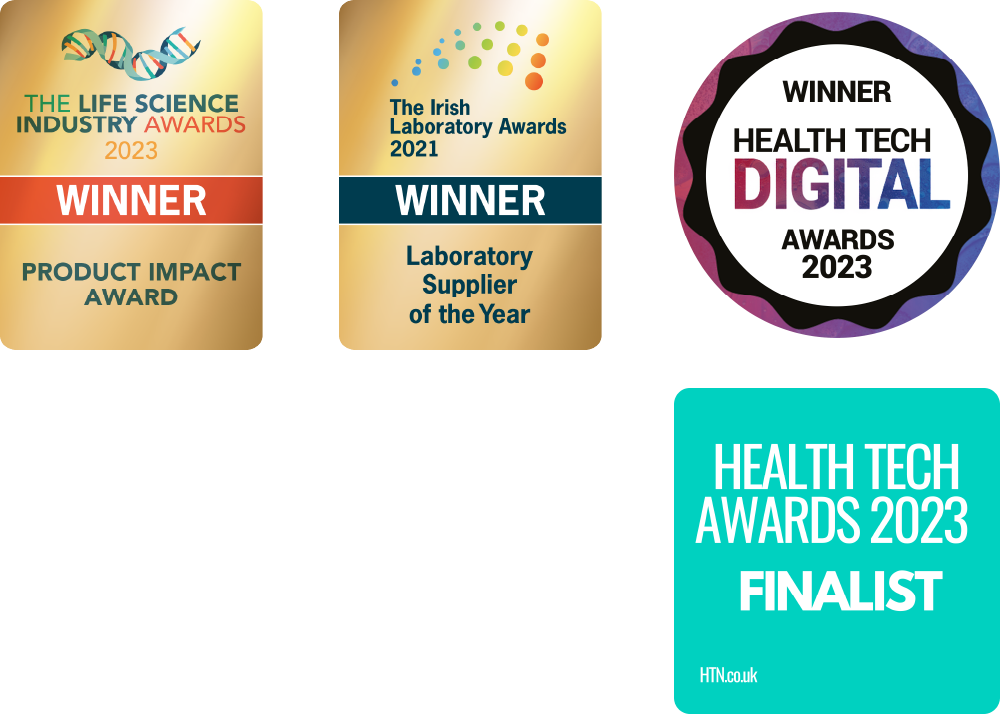Enhancing Patient Care with an ePrescription Solution
The adoption of digital solutions is increasingly pivotal for enhancing patient care and safety. This is true across all aspect of healthcare, including writing prescriptions.
ePrescriptions, or electronic prescriptions, are digital versions of traditional paper prescriptions. They are created, signed, and transmitted electronically by healthcare providers to community pharmacies, replacing the need for handwritten prescriptions. ePrescription aims to streamline the prescription process, reduce medication errors, and improve the overall efficiency of healthcare delivery.
ePrescription works by integrating with the hospital Patient Administration System (PAS). When a healthcare provider prescribes medication, the prescription is generated electronically and can be sent directly to the patient’s preferred community pharmacy through secure channels such as HealthMail. This eliminates the need for handwritten prescriptions and reduces the chances of transcription errors. Digital signatures ensure the authenticity and security of the prescriptions, while a comprehensive audit trail records every user action for transparency and accountability.
DMF Systems’ ePrescription solution, part of the award-winning GeneCIS Clinical portal, is designed to streamline the prescription process and reduce medication transcription errors. This article delves into the multifaceted benefits of ePrescriptions, highlighting how they improve patient care, streamline workflows, and support clinical governance. Here we’ll explore the multifaceted benefits of ePrescriptions, highlighting how they improve patient care, streamline workflows, and support clinical governance.
Improving Patient Care and Safety
The use of ePrescriptions significantly enhances patient care and safety by addressing common issues associated with handwritten prescriptions. Handwritten prescriptions can often be difficult to read, leading to medication errors that can have serious consequences for patient health. According to a report by HIQA, approximately half of the 17% of patient hospitalisations due to medication errors are considered avoidable. In Sweden, for example, ePrescribing has reduced medication errors by an estimated 15%, demonstrating its potential to enhance patient safety on a large scale. Further supporting the case for ePrescriptions, an Oxford University study found that digital solutions significantly reduce the incidence of medication errors and enhance patient outcomes.
Even closer to home, DMF Systems’ ePrescription module has greatly improved patient care and safety at Mayo University Hospital. By leveraging ePrescription, it has addressed the limitations of traditional paper prescriptions, endeavouring to ensure that patients receive safe, accurate, and timely medication. This transformation in healthcare practices underscores the potential of ePrescriptions to enhance the quality of patient care. Let’s dive into some of the ways ePrescriptions help improve patient care and safety:
Increased Legibility and Reduced Errors
One of the primary advantages of Electronic Prescriptions is increased legibility. Unlike handwritten prescriptions, which can be prone to misinterpretation, electronic prescriptions are clear and unambiguous. This drastically reduces the risk of medication errors caused by misreading handwritten notes. Enhanced legibility helps to ensure that patients receive the correct medication in the correct dosage, thereby contributing to improved patient outcomes.
Accurate Medication Records
ePrescription supports the accurate inclusion of medications on the patient’s discharge summary for the GP. This accuracy is particularly crucial when medications are changed during a hospital stay. Ensuring that the patient’s GP is aware of these changes prevents the inadvertent continuation of discontinued medications. The integration of DMF’s ePrescription with eDischarge further enhances this process, as outlined in our Mayo University Hospital case study. The solution has vastly improved the legibility and accuracy of discharge prescriptions, supporting seamless continuity of care.
Reducing Transcribing Errors
Electronic prescriptions also significantly reduce transcribing errors. Manual transcription of prescription details by pharmacists is a time-consuming process that can be prone to errors. By electronically transmitting prescription details, ePrescription eliminates the need for manual entry, thus reducing the risk of transcription errors and speeding up the dispensing process.
Timely Access to Medications
ePrescription can make time-critical medications more readily available to patients. The electronic transmission of prescriptions allows pharmacies to prepare medications in advance, helping to ensure that patients have timely access to their prescribed drugs on arrival at the community pharmacy. This is particularly important for patients requiring urgent medication, as it reduces delays and ensures prompt treatment.
Streamlining the Prescription Process
Electronic Prescription solutions streamline the prescription process, reducing the workload for both prescribers and pharmacists. The electronic transmission of prescriptions minimises interruptions from pharmacies seeking clarification, thereby improving the efficiency and quality of prescriptions.
Reducing Pharmacy Queries
Pharmacies often need to contact prescribers to clarify handwritten prescriptions, leading to interruptions and delays. With ePrescription, the risk of unclear or incomplete prescriptions is minimised, reducing the need for pharmacies to seek clarification. This not only saves time for pharmacists and prescribers but also ensures that patients receive their medications without unnecessary delays.
Efficient Dispensing Process
The electronic downloading of prescription details eliminates the need for manual entry by pharmacists. The dispensing process is streamlined, making it more efficient and less error-prone. Pharmacists can quickly access and verify prescription details, ensuring that medications are dispensed accurately and promptly.
Patient Allergy Information
Recorded patient allergies are prominently displayed on DMF’s ePrescription solution. This provides an important visual aid to prescribers and healthcare providers throughout the eDischarge and ePrescription creation process, supporting them to avoid adverse drug-to-allergy interactions.
Integrating with Drug Formularies
DMF Systems’ ePrescription solution integrates seamlessly with any drug formulary, including the Irish Pharmacy Union’s Product File. This integration enhances data accuracy and reporting capabilities, supporting standardised reporting and data analytics, which are crucial for improving pharmaceutical practices and patient outcomes.
Enhanced Data and Reporting
Integration with a drug formulary provides enhanced data and reporting capabilities. This allows healthcare providers to track prescription patterns, identify trends, and make data-driven decisions to improve patient care. The system also supports free text and ‘guided’ free text, accommodating hospital pharmacy preferences and ensuring flexibility in prescribing practices.
Comprehensive Medication History
The system automatically gathers a complete medication history, including discontinued medications, ensuring a thorough record for the patient. This comprehensive history is invaluable for healthcare providers, enabling them to make informed decisions about patient care and treatment plans.
How ePrescriptions from DMF Systems Make Prescribing Medication Safe and Seamless
DMF Systems’ award-winning GeneCIS Clinical Portal electronically facilitates the entire patient journey. As a module of GeneCIS, ePrescription significantly enhances the hospital discharge workflow process. It minimises the need for additional data capture by clinicians, reducing medication errors (MEs) and adverse drug events (ADEs). The system incorporates medication reconciliation at admission, allowing the clinical team to apply medication changes during the inpatient stay. At discharge, the To Take Out (TTO) prescription is prepared automatically using the reconciled and updated medication list, eliminating the need for transcription and further reducing errors.
Prescriptions can be printed or delivered electronically via HealthMail or HL7 messaging, streamlining the process and improving the accuracy of medication delivery. By reducing manual entry and potential errors, electronic prescriptions enhance clinical care delivery and improve the quality of care for patients. The integration of ePrescription into hospital workflows ensures a seamless transition from hospital to home care, supporting continuity of care and patient safety.
Key Features of DMF’s ePrescription Solution
DMF’s ePrescription solution is equipped with several advanced features that make it a robust and reliable tool for healthcare providers:
- Digital Signatures: ePrescriptions are digitally signed by the prescriber, ensuring authenticity and security.
- HealthMail Integration: Prescriptions can be sent via HealthMail to the patient’s preferred pharmacy or printed if necessary.
- Audit Trail: A comprehensive audit trail records every user action and attempted action, providing transparency and accountability.
- Cloud Hosting: The solution can be hosted on Azure or AWS, offering flexibility and scalability.
- Interoperability: ePrescription integrates with any drug formulary, such as the IPU Virtual Medicinal Product File (VMP file) for ease of searching and prescribing.
These features collectively improve patient safety, streamline the prescription process, and ensure the secure and efficient delivery of medications.
Safer Patient Care at Mayo University with DMF Systems’ ePrescription
The implementation of DMF Systems’ GeneCIS ePrescription and eDischarge solutions at Mayo University Hospital has yielded significant improvements. According to John Kelly, Senior Pharmacist at Mayo University Hospital, the solutions have vastly improved the legibility of discharge prescriptions, providing ongoing access to better discharge records across the hospital. The templating capabilities of ePrescription provide a systematic approach to prescribing, reducing the risk of error and supporting the principles of good clinical governance. This has led to the provision of safer patient care and improved clinical outcomes.
The GeneCIS ePrescription module from DMF Systems is a game-changer in the healthcare industry, offering a secure, efficient, and reliable method for managing prescriptions. By improving patient care and safety, streamlining prescription processes, and supporting clinical governance, DMF’s ePrescription is setting a new standard for digital healthcare solutions. For more information, visit the DMF Systems ePrescription product page or contact us with any questions.











